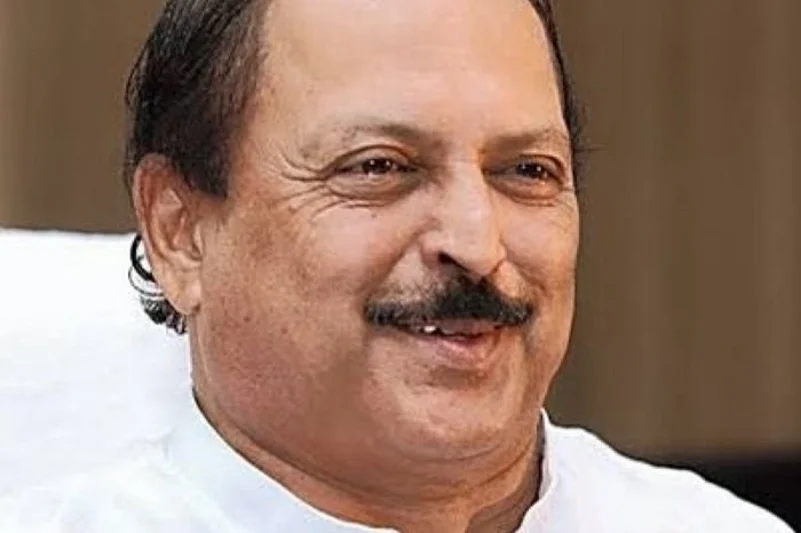The passing away of TMC leader Subrata Mukherjee has left away a void in the party.
Mukherjee was considered a man for all seasons who sailed through the state's politics both as a deft politician and an able administrator for more than 50 years.
Mukherjee (75), who held the panchayat and rural development portfolios, passed away after prolonged illness at a state-run hospital in Kolkata on Thursday evening.
Born in 1946 in South 24 Parganas district, Mukherjee was the eldest of five siblings.
A stalwart in Bengal politics, his political career spanned more than five decades, beginning in the tumultuous 1960s as a student leader.
Advertisement
After being baptised in politics as a student leader of Bangabasi College in 1967, when West Bengal had its first non-Congress government, Mukherjee, through his organisational and oratory skills, quickly rose through the ranks and became one of the most popular leaders of the Congress, along with late Union minister Priya Ranjan Dasmunsi and former state Congress president Somen Mitra.
Dasmunsi and Mitra died in 2017 and 2020 respectively.
Mukherjee's organisational skills were noticed by Dasmunsi, who took him under his wings.
The pair crisscrossed the length and breadth of West Bengal, fighting the two-front ideological and political battle with the Naxalites and the Left.
Advertisement
His oratory and organisational skills had also earned him praise of then prime minister Indira Gandhi.
Mukherjee's first brush with electoral politics came in 1971 when he became the youngest MLA in the West Bengal Assembly from the Ballygunge seat at 25.
His political career reached a new high when in 1972, he became the youngest minister in the Siddhartha Shankar Ray cabinet after the Congress returned to power with a massive mandate. He was made the minister of state for information and culture.
He was often criticised for suppressing the press during the Emergency period from 1975-77.
Although he lost the elections in 1977, it failed to stop his rapid growth in the party, and he was back in the Assembly after the 1982 polls from the Jorabagan seat. He remained a member of the Assembly till the last day of his life, from the Ballygunge seat.
According to veteran politicians of the state, Mukherjee was the political mentor of Mamata Banerjee during her initial years in Chhatra Parishad in the late 1970s and early 1960s.
Mukherjee had proposed Banerjee's name as the Congress candidate against then CPI(M) stalwart Somnath Chatterjee from the Jadavpur Lok Sabha seat in 1984 parliamentary polls. Banerjee went on to defeat Chatterjee to emerge as a giant killer in state politics.
One of the most colourful politicians in the state, Mukherjee was also known for his sense of humour and as someone who was at ease when it came to shifting camps.
Advertisement
He also acted in a television serial alongside Moon Moon Sen in the late 1980s.
He switched over to the newly-formed TMC in 1999, although he remained an MLA of the Congress from the Chowranghee seat.
His acumen as an able administrator was widely praised during his tenure as the mayor of the Kolkata Municipal Corporation from 2000 to 2005.
But in 2005, due to differences with Banerjee, he left the TMC and formed an alliance with the Nationalist Congress Party.
Mukherjee's desertion dealt a heavy blow to the TMC, leading to its defeat in the 2005 KMC election.
Furious over his betrayal, Banerjee had nicknamed him "tormuj" (watermelon), describing him as someone who was a Congress activist in public but was hand in glove with the CPI(M).
Advertisement
Though one of the Left Front regime's fiercest critics, Mukherjee was known for maintaining close ties with CPI(M) leaders, including the then chief minister Jyoti Basu.
He later went back to the Congress in 2005 only to desert it again just ahead of the 2010 KMC polls to join the TMC.
"Subrata Mukherjee was not only an able organiser and administrator but had a deep connection with the grassroots level workers. Maybe, that was the reason that he was always on the winning side," veteran Congress leader and MP Pradip Bhattacharya said.
In 2011, he was elected from the Ballygunge seat as a TMC candidate and was given the panchayats and rural development charge. During his tenure, West Bengal earned laurels for being one of the top-performing states in the implementation of the MGNREGA scheme. He also held the portfolio of public enterprise and industrial reconstruction.
Advertisement
Just ahead of the 2016 Assembly polls, Mukherjee's name cropped up in the Narada sting tape case along with a few other TMC leaders. He had denied any involvement and termed it a "political conspiracy".
A graduate of anthropology and a master's degree holder in archaeology, Mukherjee was a vivid storyteller who firmly believed in the existence of ghosts.
He unsuccessfully contested the Lok Sabha polls thrice -- from Kolkata Northwest in 2004 and from Bankura in 2009 and 2019. (With PTI inputs)




















